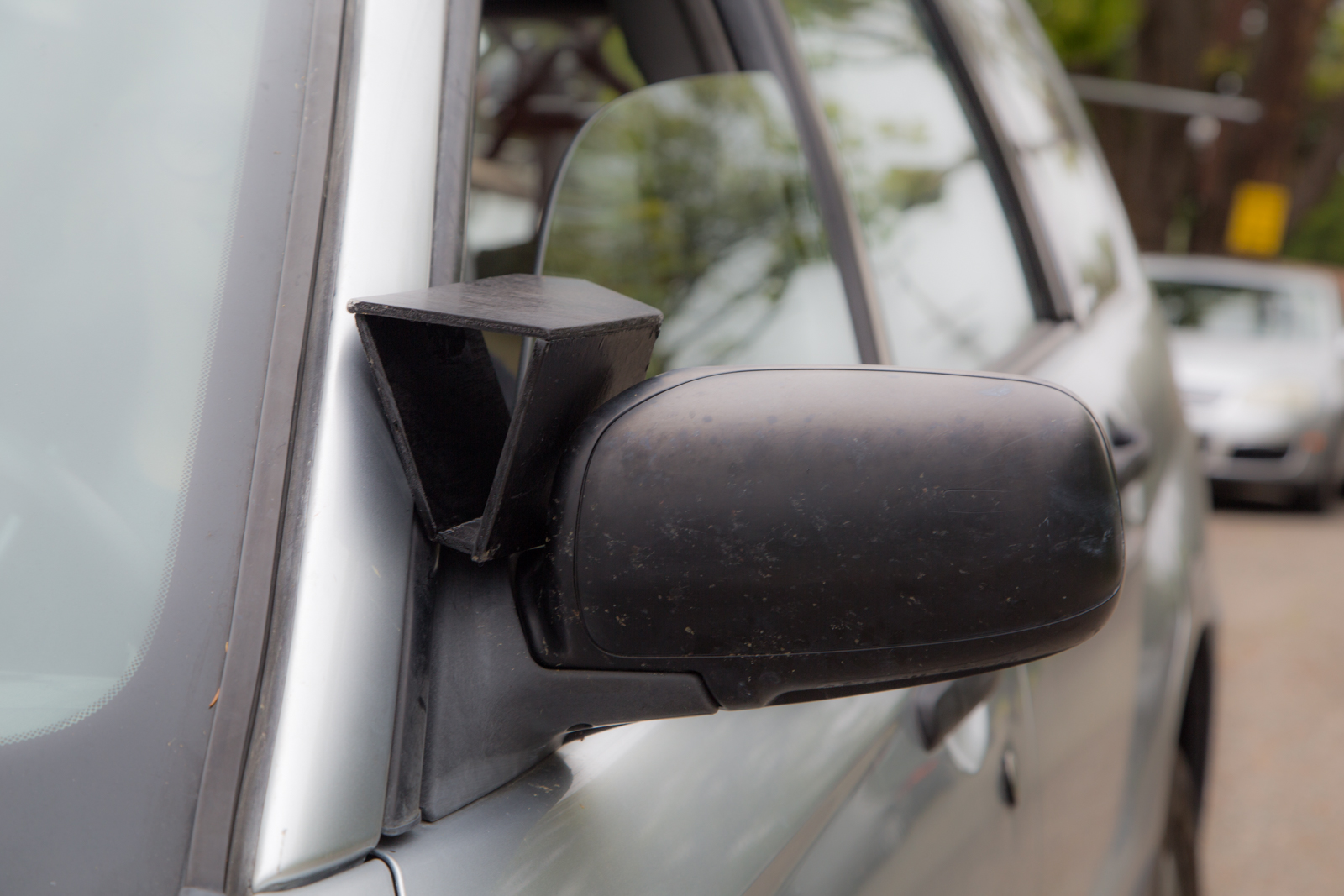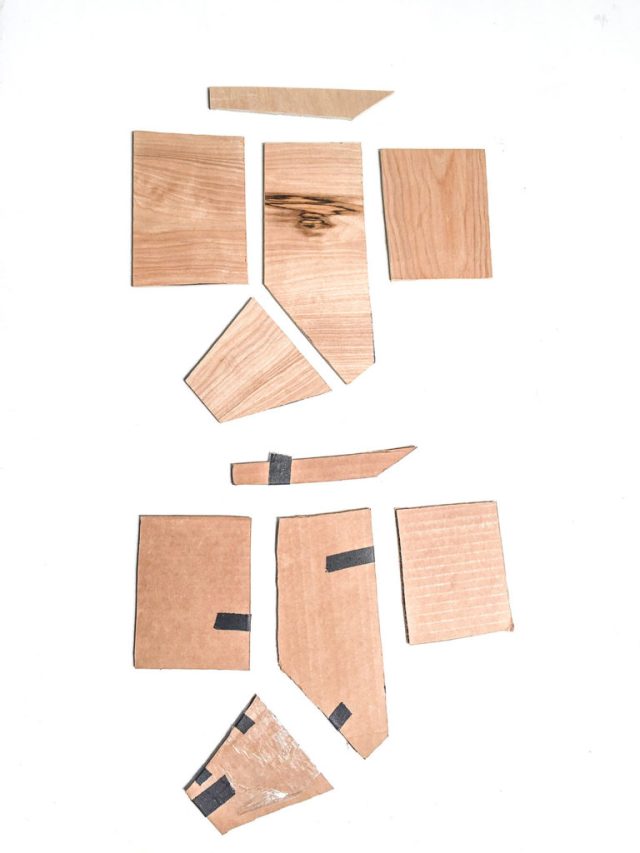
My first car had no air conditioning. In those days not many cars did. What we did have, though, were small triangular vent windows (Figure A) that pivoted outward to scoop buffeting gales of fresh air into the car, which cooled us by evaporation. It worked much better than you might think. It also allowed us to smell fresh-cut hay or yard grass, or fragrant flowers, or fall leaves, and it let us sense pleasant temperature changes while driving through shady valleys or climbing New England hills. I miss all that.


Cars these days — some even equipped with ultimately pampering filtered and zoned AC — cut us off from the outside world, and opening the windows on a fine spring or autumn day or a warm summer evening doesn’t let in much air.
To experience a whiff of those bygone days, make your own air scoop. Almost every car has a convenient space between the front plastic triangle of side-window filler and the side mirror housing. It’s the perfect place to mount a scoop, but each vehicle is a little different, so you’ll need to tailor yours to fit.











